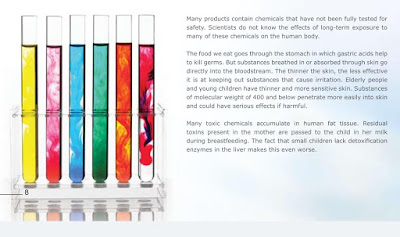There are many who, desiring optimal health, turn to drug to enhance psychological well-being. It was found that many Americans periodically use some form of psychiatric medication such as tranquilizers, sleeping pills, anti-psychotic drugs and anti-depressants, which are widely available on the market. These medicines are used to treat symptoms like anxiety, insomnia, hyperactivity, absent-mindedness and depression. Misguided treatment of these health problems could result in serious repercussions. These medicines should only be used after thorough research and careful evaluation.
Tranquilizers and Sleeping Pills
Today’s lifestyle has become synonymous with stress and agitation. Studies show that 15.6% of people use tranquilizers to relieve anxiety. Of this percentage, 39% use these drugs daily and 78% admit taking tranquilizers for over a year.
Most tranquilizers belong to a chemical family called benzodiazepines with drug names like Valium, Librium, Xanax and Halcium. Sleeping pills belong to another class of tranquilizers from the barbiturates group such as buspirone, diphenhydramine, hydrozyzine and meprobamate.
These drugs are popular but are they really effective? Studies show that most potent tranquilizers are ineffective after about four months of use and sleeping pills have been shown to lose efficacy after just two to four weeks of use. In addition, tranquilizers and sleeping pills can be very dangerous to health.
Side effects include low blood pressure, hip fractures, liver disease and allergies. Mind-altering effects include decreases mental function, forgetfulness, withdrawal syndromes and lack of coordination. Alarmingly, about 16,000 traffic accidents a year are attributed to motorists driving under the influence of such drugs.
Evidence also suggests that tranquilizers are unnecessary as patients have responded as well to placebos in some studies. According to the World Health Organisation (WHO), “anxiety is a normal response to stress, and only when it is severe and disabling should it lead to drug treatment.”
Anti-psychotic Drug
Anti-psychotic drugs are meant to treat serious mental illnesses such as schizophrenia, manic-depression and dementia. However, it is said that in the US, an estimated 750,000 people over the age of 65 use these drugs although not all have been diagnosed with such illnesses. Experts believe that many people wrongly turn to anti-psychotic drugs after experiencing symptoms similar to schizophrenia like hallucinations and confusion. In many cases, these symptoms are side effects induced by other drugs that the person takes regularly.
Adverse effects of anti-psychotic drugs include nerve damage, tardive dyskinesia (difficulty chewing or swallowing), loss of balance, muscular fatigue, delirium and Parkinson’s disease. One study found that 36% of patients with drug-induced Parkinson’s had been taking anti-psychotic drugs when diagnosed with the disease.
The February 2004 issue of the Diabetes Care journal warns that people taking anti-psychotic drugs should be carefully monitored for signs of developing diabetes, obesity or high cholesterol. This warning comes from the American Diabetes Association, the American Psychiatric Association, the North American Association for the study of Obesity, and the American Association of Clinical Endocrinologists.
Antidepressants
Depression is a serious and very real illness and should not be ignored. It is said to affect over 15 million Americans. But as with many other mental illnesses, its causes and symptoms can be misunderstood.
Depression can actually be caused by drugs used to treat other ailments. Depression could be triggered by thyroid disorders, cancer, hepatitis or other chronic diseases. It is essential to investigate the underlying causes of depression and understand the detailed history of the patient before treatment is given.
The prolonged and excessive use of some antidepressants have been known to cause low blood pressure, irregular heart rate, enlarged prostate, nausea, blurred vision, excessive thirst, diarrhea, drowsiness, loss of memory, dizziness or muscle weakness.
Whether used to treat simple stress or a more serious mental disorder, psychiatric drugs can have a profound and detrimental effect on both our physical and mental well-being. Before taking such a drug, it is imperative to consult a physician to determine its necessity and correct dosage as well as analyse possible consequences.
Pain Killer
For someone
in pain, the idea of immediate relief can be highly tempting. Whether out of
desperation or habit, many people turn regularly to pain medication to relieve
headaches, back injuries, menstrual pain and other ailments. Pain killers can
live up to the promise of quick relief but in turn, they can bring a variety of
dangerous consequences. Widely used pain killers include aspirin, NSAIDs and
steroidal anti-inflammatory drugs.
Aspirin
Aspirin has become so popular that people think it can
treat almost any health dilemma. However people do not know that Aspirin is
a corrosive substance, which when used for a long periods of time or in
high doses, can increase our risk of developing peptic ulcers in the lower part
of the esophagus, the stomach or the beginning of the small intestine.
Aspirin also causes bleeding in the stomach and over time, can weaken the
body’s ability to slow and contain bleeding throughout the body. Taking
aspirin for as little as three days can increase the amount of bleeding during
childbirth, tooth extraction and surgery. Many doctors recommend that
people with serious liver disease, kidney malfunction vitamin K deficiency and
blood clotting disorders refrain from taking aspirin.
Some people can also be allergic to aspirin and
experience rashes or hives, swollen lymph nodes, breathing difficulties, drop
in blood pressure or in extreme cases, collapse in shock, after taking it. Children
with flu or chicken pox should not be given aspirin as it could cause Reye’s
syndrome.
Nonsteroidal Anti-Inflammatory Drugs (NSAIDs)
NSAIDs work by stopping the formation of chemicals in
the body that cause pain such as headaches, fever, as well as inflammation such
as arthritis. Many NSAIDs are available as over the counter (OTC) drugs. Examples of
NASIDs are acetaminophen or paracetamol (found in panadol and Tylenol),
ibuprofen (found in flu pills like Advil and Motrin), mefenamic acid (found in
Ponstan) and naproxen (found in Naprosyn).
NSAIDs are widely misunderstood. For example, while
numbing pain, acetaminophen does not help stiffness or inflammation. The
elderly also tend to consume such pain killers without realising that their
kidneys now have reduced capacity to clear these drugs from their system and as
a result, they should take a reduced dosage of the drugs. Large doses of
acetaminophen may cause liver damage or even death.
Experts advise informing your doctor if you are taking
an OTC drugs like NSAIDs. Otherwise, taking another prescription drug can be
harmful. For example, combining an OTC fever drug containing acetaminophen with
a similar prescription drug can be deadly. NSAIDs like mefenamic acid also have
a tendency to upset the stomach.
The National consumers league says that over 175
million Americans take OTC tablets to relieve pain without being aware of the
dangers. Of the 84% who took pain medications in 2002, 44% admitted exceeding
the recommended dose. Surveys indicate that one third of OTC drug consumers
don’t read the label before buying or using the drug. If you don’t have time
for drug labels, heed this: 16,500 Americans die each year and 103,000 are
hospitalised for NSAID-related complications. NSAID almost triple the risk of
stomach bleeding, usually without warning.
Steroidal Anti-Inflammatory Drugs (Steroids)
Steroids are very important hormones that help control
inflammation and regulate vital body functions. Arthritis sufferers sometimes
switch to steroids if NSAIDs do not provide adequate relief. However, steroids
are also associated with various side effects.
Steroids work by suppressing the immune system, making
us vulnerable to infections. Older adults also have a risk of developing
osteoporosis as a result of using steroids. Steroids’ side effects are
highly dependent on the duration of use. For example, short term use of
corticosteroids has been linked with reversible symptoms of hypertension,
hyperglycaemia, gastrointestinal bleeding, glaucoma, mood disorders, psychotic
reactions, pancreatitis, proximal myopathy and sodium and water retention.
Long term adverse effects include amenorrhea, aseptic
necrosis of the bone, cataracts, cushingoid appearance, hypothalamic-pituitary
axis suppression, hyperlipidemia, hypertension, mood disorders, muscle weakness
and osteoporosis.
Please read
to increase your health knowledge, your body deserve your attention!!!!
The effects
of the common cold and cough are undoubtedly uncomfortable. Billions of dollars
are spent every year on cold related medicines despite knowing that the cold is
incurable. Although the effectiveness of some of these medicines is debatable,
people still continue to consume them even when they experience the side
effects. Many pay a heavy price for short-term relief.
Cold and
Allergy Medicines
A cold is
caused by a virus. Cold medicines may help suppress symptoms but the
virus responsible will continue to roam inside the body.
Despite
this, nary a household goes without some form of cold medication in its
medicine cabinet. Besides their questionable ability to provide relief, cold
medicines may contain drugs such as triprolidine, pseudoephedrine, guaifenesin,
phenylpropanolamine and phenylephrine. Many cold medicines combine several of
these chemicals into one tablet, giving the false impression that more is
better, when in actuality; they may increase the risk of unwanted side effects.
Some
damaging effects of these drugs are high blood pressure (making the drugs
dangerous for those with heart disease, diabetes or thyroid disease),
confusion, nervousness, dry mouth, constipation, difficulty urinating,
decreased sweating and worsening of glaucoma.
People also
regularly use these medicines to treat allergies. Nasal sprays with ingredients
like pseudoephedrine hydrochloride or other antihistamines may prove harmful to
allergy sufferers. Using these ingredient could lead to rebound congestion,
increased nasal stuffiness and permanent damage to membranes lining the nose.
Cough
Suppressants
Similar to a
runny nose, a cough is actually a way for the body to expel an infection.
Although a dry and painful cough may be a sign of a more serious infection, it
is generally advised that productive coughs should not be suppressed.
Adverse
effects of cough suppressants such as hydrocodone,
dextromethorphan and phenyltoloxamine include skin rash, dizziness, nausea,
nasal congestion, constipation, dry mouth, difficulty urinating blurred vision
and headache. In general, coughs are most effectively combated by clear
liquids, which help thin mucous and promote better breathing.
Anti-histamines
Some drugs
actually prolong cold symptoms and antihistamines are a prime example of drugs
that people think can effectively treat any illness. Antihistamines can make
a cold or cough worse by thickening nasal secretions and drying our mucous
membranes. Antihistamines are medicines designed to help stop allergy
symptoms such as itching eyes and sneezing. However, they can cause serious
side effects like confusion, short-term memory loss, disorientation, dry mouth,
constipation and an upset stomach.
The antihistamine,
hydroxyzine, used to treat itching and hives, may also cause restlessness,
seizures trembling or shakiness. Diphenhydramine has been known to cause
unusually fast heartbeat, increased sensitivity to the sun, unusual bleeding,
sore throat, nervousness, restlessness, irritability and ringing in the ears.
You should tell your doctor if you are taking other prescription medicines as
experts say antihistamines could react negatively when taken in combination
with other drugs.
Asthma Drugs
Asthma’s
symptoms may resemble that of the common cold but asthma is much more delicate
condition that needs careful monitoring and treatment.
Drugs such
as aminophylline, theophylline and oxtriphylline are frequently used to treat
symptoms or chronic asthma, bronchitis and emphysema, including difficult
breathing, sneezing, chest tightness and shortness of breath. Asthma drugs open
airways in the lungs and increase air flow, making breathing easier, but there
are risks.
The body can
only tolerate a specific amount of asthma drugs. Too little may bring on an
asthma attack while too much could lead to seizures, irregular heart rhythm and
a pounding heartbeat. Adverse effects include bloody stools, confusion
diarrhea, dizziness, flushed skin, headache, increased urination, loss of
appetite, muscle twitching, nausea, trembling, trouble sleeping, vomiting of
blood and heartburn.
The asthma
drug pirbuterol can worsen high blood pressure, diabetes or heart disease.
Inhaled drugs, such as albuterol and terbutaline, have found to cause tremors,
jitters, nervousness and in extreme cases, tumours in the ligaments and heart
disease.
Antibiotics
Antibiotics
are used to treat a diverse range of bacterial infections like
pneumonia because they can break down a bacterium’s cell walls. But as
viruses do not have cell walls, antibiotics are useless against viral
infections. Many people do not realise that using antibiotics to treat
viral infections actually worsens the illness. Antibiotics will kill both
good and bad cells. Under these circumstances, antibiotics do not only
prove to be useless, but may worsen the problem.
Side effects
of antibiotics include allergic reactions, diarrhea, skin rash, abnormal
weakness, joint and muscle pain, nausea, vomiting and bleeding.
Researchers warn that misusing antibiotics can affect acquired immunity and
lead to potentially dangerous bacterial resistance. For instance, when your
child takes antibiotics for Strep throat, the antibiotics replace the immune
cells’ function in stopping the infection. As the immune cells are not given a
chance to fight the bacteria, they do not develop immunity to the bacteria.
This can lead to recurring Strep throats. Antibiotics may prove useless against
the same bacteria, as it may have already developed resistance to the medicine.
Therefore, in some cases, it is better for our body to fight diseases on its
own.
The US Food
and Drug Administration has expressly warned against the misuse of antibiotics,
stating that “bacteria and other microorganisms that cause infections are
remarkably resilient and can develop ways to survive the drugs meant to kill or
weaken them. This antibiotic resistance, also known as antimicrobial resistance
or drug resistance, is due largely to the increasing use of antibiotics.
Ignorantia salus non excusat!
(Ignorance
of health excuses no one!)
Thanks & Warmest Regards,
Raine Tan
Your Excellence Lifestyle Coach
+6598006016 🌎






























